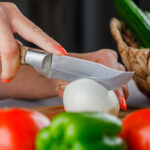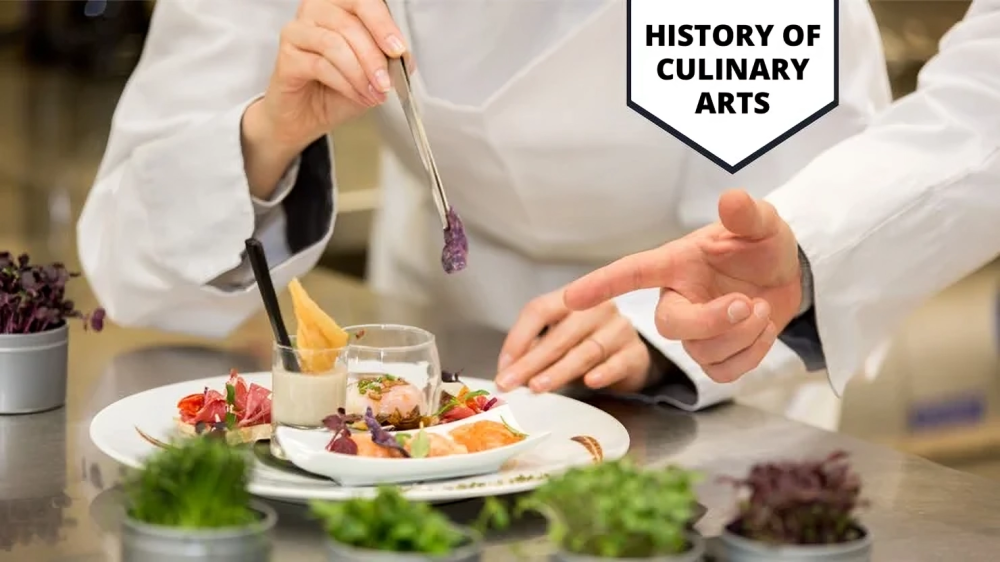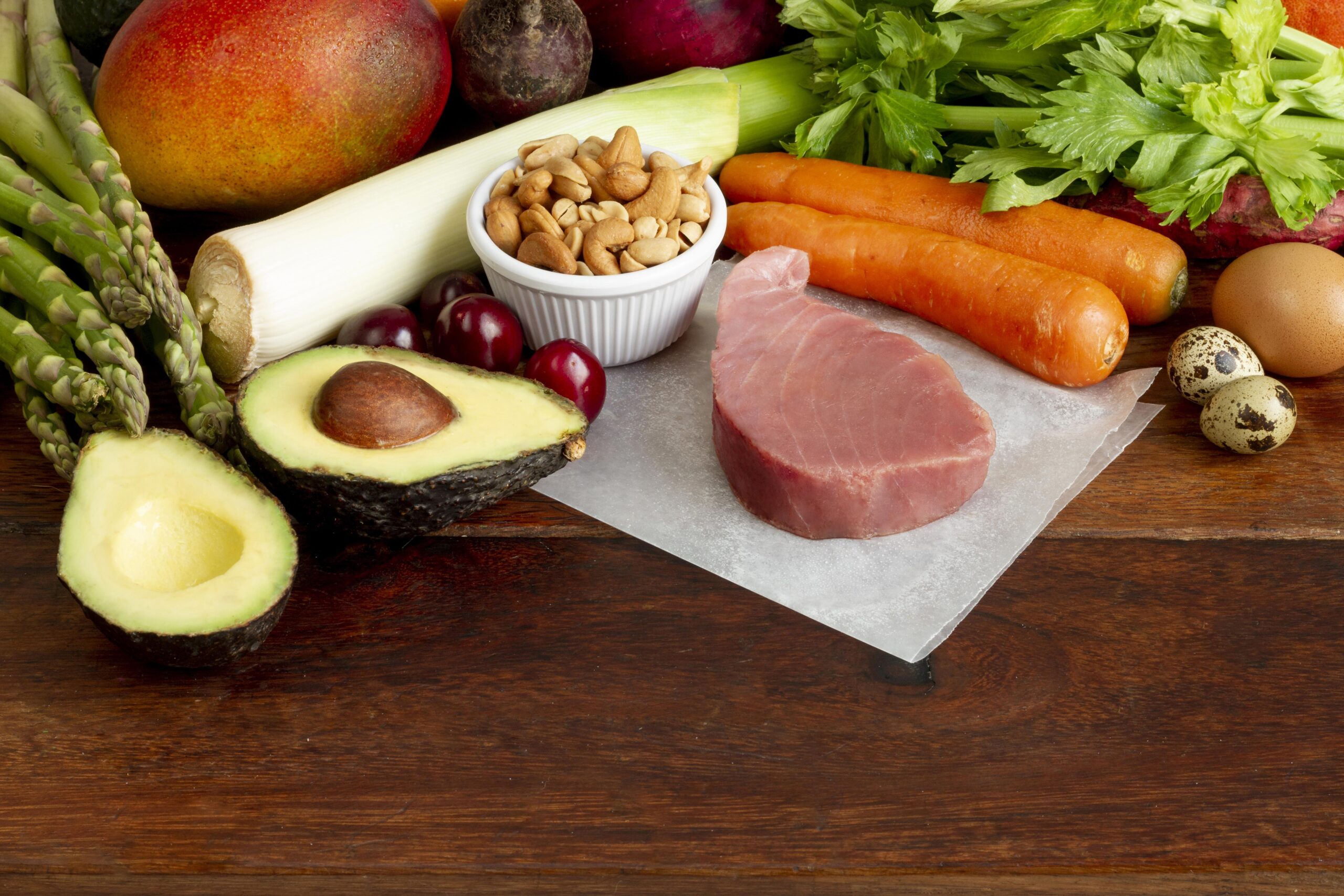Introduction to Culinary Skills
Learning to cook is a rewarding experience that combines science and creativity to create tasty dishes out of uncooked components. This trip develops your creativity and broadens your awareness of other cultures in addition to improving your cooking skills. Gaining culinary expertise enables you to express yourself via food, making an impression on loved ones and maybe leading to career chances.
Cooking is a skill that combines technique, imagination, and ingredient knowledge. Developing your cooking abilities may result in better eating habits, more self-assurance in the kitchen, and a more pleasurable cooking experience, regardless of expertise level. This in-depth manual examines the fundamental talents, equipment, and methods required to improve your cooking.
Basic Cooking Techniques
Mastering basic cooking techniques is crucial for building a strong culinary foundation. These techniques serve as the backbone of many recipes and are essential for preparing a wide variety of dishes:
- Sautéing: A quick and efficient method for cooking small pieces of food in a little oil or butter over high heat. This technique enhances flavors and textures, making it ideal for vegetables, meats, and seafood.
- Boiling: Perfect for cooking pasta, potatoes, and vegetables, boiling involves immersing food in hot water until it reaches the desired level of tenderness.
- Grilling: This technique imparts a smoky flavor to food and is perfect for meats, vegetables, and even fruits. Grilling can be done on a barbecue or in a grill pan on the stove.
- Baking: Used primarily for pastries, bread, and cakes, baking involves cooking food in an oven using dry heat. Mastering baking opens up a world of delicious possibilities.
Essential Kitchen Tools
Having the right tools can make cooking more efficient and enjoyable. Investing in high-quality kitchen equipment ensures durability and enhances your culinary experience:
- Chef’s Knife: A versatile tool that is essential for chopping, slicing, and dicing.
- Cutting Board: A sturdy surface is crucial for safely preparing ingredients.
- Pots and Pans: A selection of different sizes and types (e.g., non-stick, cast iron) allows for versatility in cooking.
- Measuring Cups and Spoons: Precision in measuring ingredients is vital for recipe success.
When choosing kitchen tools, look for quality materials and ergonomic designs that are comfortable to use.
Understanding Ingredients
A key aspect of cultivating culinary skills is understanding the ingredients you use. Fresh, high-quality ingredients can elevate a dish from good to exceptional. Learning how to source and store ingredients is essential for maintaining their flavor and nutritional value.
- Sourcing Ingredients: Visit local markets to find fresh, seasonal produce. Building relationships with local vendors can also provide insights into the best ingredients available.
- Storing Ingredients: Proper storage extends the shelf life of ingredients and prevents spoilage. Use airtight containers, refrigeration, or freezing to preserve freshness.
Developing Flavor Profiles
Creating delicious dishes involves balancing different flavors and experimenting with taste. Here’s how to develop your flavor profiles:
- Using Herbs and Spices: These add depth and complexity to your dishes. Experiment with combinations to create unique blends that suit your palate.
- Balancing Flavors: Learn to balance sweet, salty, sour, bitter, and umami elements to create harmonious dishes.
- Experimenting with Taste: Don’t be afraid to try new flavor combinations or techniques. Taste as you cook and adjust seasoning accordingly.
Culinary Skills for Beginners
For those new to cooking, starting with simple recipes can build confidence and provide a solid foundation:
- Easy Recipes: Begin with dishes like scrambled eggs, pasta with tomato sauce, or a simple stir-fry. These recipes teach essential techniques and are hard to mess up.
- Step-by-Step Guidance: Follow recipes closely and take your time to understand each step. Watching tutorial videos can also be helpful.
- Tips for Success: Start small, focus on mastering one technique at a time, and don’t be discouraged by mistakes—they’re part of the learning process.
Advanced Culinary Techniques
Once you’re comfortable with the basics, exploring advanced techniques can elevate your cooking:
- Sous Vide: A method of cooking food in vacuum-sealed bags submerged in a water bath at precise temperatures, ensuring even cooking and enhanced flavors.
- Fermentation: This ancient technique adds depth and complexity to foods like sauerkraut, kimchi, and yogurt.
- Molecular Gastronomy: This innovative approach uses scientific principles to create unique textures and presentations, such as foams and gels.
Culinary Skills for Health
Cooking with health in mind involves choosing nutritious ingredients and adapting recipes to meet dietary needs:
- Cooking for Nutrition: Focus on whole foods, lean proteins, and plenty of fruits and vegetables to create balanced meals.
- Adapting Recipes: Modify recipes to accommodate allergies or dietary preferences, such as gluten-free, vegan, or low-carb options.
- Portion Control: Learn to measure serving sizes and avoid overeating, which is key to maintaining a healthy diet.
Culinary Creativity and Innovation
Creativity in the kitchen allows you to develop your unique style and experiment with different cuisines:
- Develop Your Style: Incorporate your personality into your dishes by experimenting with flavors and presentation.
- Incorporate Global Cuisines: Try cooking dishes from different cultures to expand your culinary repertoire and gain new perspectives.
- Experiment with Recipes: Don’t be afraid to deviate from recipes and make them your own by adding personal touches or adjusting ingredients.
Culinary Skills and Sustainability
Sustainability in the kitchen involves mindful practices that reduce waste and promote eco-friendly habits:
- Reducing Food Waste: Plan meals, use leftovers creatively, and compost scraps to minimize waste.
- Sourcing Sustainable Ingredients: Choose organic, locally-sourced, and seasonal ingredients to support sustainable agriculture.
- Eco-Friendly Cooking Practices: Use energy-efficient appliances, cook in bulk to save resources, and recycle whenever possible.
Exploring Different Cuisines
Exploring world cuisines enriches your culinary skills and broadens your understanding of global flavors:
- Introduction to World Cuisines: Learn about the unique ingredients and techniques that define different culinary traditions.
- Signature Dishes: Try preparing iconic dishes from various cultures, such as Italian risotto, Japanese sushi, or Indian curry.
- Cultural Influences: Understand how historical and cultural factors shape the foods and flavors of different regions.
Baking and Pastry Skills
Baking requires precision and practice but rewards with delightful creations:
- Bread Making: Learn the basics of yeast doughs and try your hand at making bread from scratch.
- Cake Decorating: Develop skills in icing, fondant, and piping to create visually stunning cakes.
- Pastry Techniques: Master techniques like making flaky pastry, puff pastry, and choux pastry for delicious desserts.
Meal Planning and Preparation
Effective meal planning saves time, reduces stress, and ensures balanced nutrition:
- Creating Balanced Meals: Plan meals that include a variety of food groups and nutrients.
- Time Management: Allocate specific times for meal prep to streamline cooking during busy days.
- Meal Prep Tips: Prepare ingredients in advance, cook in batches, and store meals for easy access during the week.
Cooking for Special Occasions
Cooking for special occasions requires careful planning and attention to detail:
- Planning Menus: Consider dietary restrictions and preferences when planning menus for events.
- Presentation Techniques: Focus on plating and garnishing to enhance the visual appeal of your dishes.
- Hosting Tips: Prepare as much as possible in advance, and create a welcoming atmosphere for guests.
Professional Culinary Skills
For those considering a culinary career, professional skills and education are crucial:
- Opportunities in Culinary Careers: Explore roles such as chef, pastry chef, food stylist, or culinary instructor.
- Importance of Culinary Education: Formal training provides a foundation of skills and knowledge needed in professional kitchens.
- Certification and Training: Consider certifications like the Certified Culinarian or training programs to enhance your credentials.
Culinary Skills and Technology
Embracing technology can enhance your culinary experience and efficiency:
- Using Gadgets and Apps: Utilize tools like smart thermometers, blenders, and recipe apps to streamline cooking.
- Online Cooking Classes: Access classes from renowned chefs and experts to learn new skills at your own pace.
- Smart Kitchen Innovations: Explore connected appliances and devices that simplify cooking and improve outcomes.
Developing a Culinary Routine
Creating a routine helps improve skills and maintain consistency in the kitchen:
- Daily Practices: Incorporate regular cooking into your schedule to build confidence and experience.
- Setting Culinary Goals: Establish goals, such as mastering a new technique each month or exploring a different cuisine.
- Keeping a Cooking Journal: Document recipes, successes, and lessons learned to track your culinary progress.
The Art of Plating
Plating is an essential aspect of culinary skills that enhances the dining experience:
- Visual Presentation: Focus on the arrangement, color, and texture to make dishes visually appealing.
- Techniques to Enhance Aesthetics: Use tools like ring molds, squeeze bottles, and garnishes to elevate presentation.
- Importance of Color and Texture: Balance colors and textures to create visually harmonious plates that entice diners.
FAQs about Cultivating Culinary Skills
How can I start improving my culinary skills?
Start by mastering basic techniques, experimenting with simple recipes, and gradually incorporating new ingredients and methods.
What are some essential kitchen tools for beginners?
Key tools include a chef’s knife, cutting board, pots and pans, and measuring cups and spoons for accurate cooking.
How do I balance flavors in a dish?
Experiment with different flavor profiles, using herbs, spices, and seasonings to achieve a balanced taste that suits your palate.
How can I make my cooking more sustainable?
Reduce food waste, source sustainable ingredients, and adopt eco-friendly cooking practices to minimize environmental impact.
What are some benefits of online cooking classes?
Online classes offer flexibility, access to expert instruction, and the opportunity to learn at your own pace from anywhere.
How can I incorporate global cuisines into my cooking?
Explore recipes from different cultures, understand their unique ingredients and techniques, and experiment with incorporating these elements into your dishes.
Conclusion
Cultivating culinary skills is a rewarding journey that offers endless possibilities for creativity, enjoyment, and personal growth. By mastering techniques, exploring different cuisines, and embracing sustainability, you can enhance your cooking abilities and share the joy of delicious meals with others. Whether for personal pleasure or professional ambition, the culinary world awaits your exploration.











